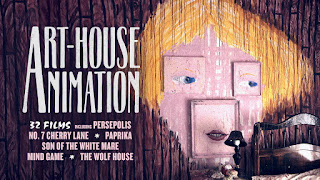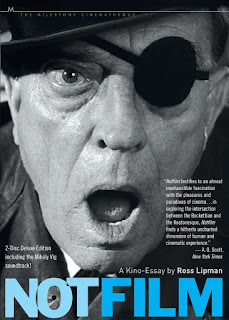Stuff I've Been Watching July 2021
Bosch. Season 7. 2021. via the amazon app. 5 July.
Mike Hale recently wrote an article in the Times about the final season of Bosch and two other similar shows:
Biologists trace changes in the environment through die-offs: a lake of belly-up fish or a sudden drop in the honey bee population. The television ecosphere is less conducive to scientific analysis — the recent arrival of the final episodes of “Bosch,” “Mr. Inbetween” and “Jack Irish” within just over a month could be coincidental. On the other hand, it could be a sign that the climate has become less hospitable to hard-boiled crime dramas with middle-aged white male heroes.
This convergence wouldn’t be worth mentioning if the shows involved were ordinary, but all three were superior, if disparate, examples of their genre. (Spoilers ahead for each show’s final season.) “Bosch,” whose seventh and last season streamed June 25 on Amazon Prime Video, was the best procedural police show around during its run. The Australian dramedy “Mr. Inbetween,” whose third and final season ended July 13 on FX, was sui generis, a smart, deadpan, quietly daft deconstruction of tough-guy clichés.
Jack Irish,” which ends its run of three TV movies and three seasons with Monday’s episode on Acorn TV, was more lightweight and formulaic than those two, a breezy but downbeat neo-noir with an angsty private eye surrounded by colorful reprobates. It was elevated by its lovely Melbourne setting and a stellar cast led by Guy Pearce as Irish. (That two of the three shows were Australian may say something about environments more congenial to traditionally male-driven story forms.)
The laconic, old-school Los Angeles detective Harry Bosch (played by Titus Welliver), the diffident fixer Jack Irish and the sardonic heavy-for-hire Ray Shoesmith in “Mr. Inbetween” (played by Scott Ryan, also the creator and writer of the show) were distinctly different character types. What they had in common was adherence to their codes, and those personal ethics — roughly similar and familiar notions about fair play, loyalty and the unfortunate but sometimes necessary application of violence — were the linchpins of the shows, as they have been for nearly a century’s worth of stories about world-weary tough guys.
They also made the shows feel increasingly old-fashioned at a time when the old formulas of genre fiction are subject to criticism and revision for their racial, gender and systemic-institutional biases and blind spots.
Read the rest of the article on the Times website.
Vivre Sa Vie. Directed by Jean-Luc Goddard. 1962. France. Via the Criterion Channel app. 7 July.
Definitely one of Goddard's best movies, at least in my opinion. Pay attention to how the camera is positioned and how it moves.
Frontline: The Power of the Fed. Via the PBS app. With Monika, Michal, and Marta. 14 July.
Consistently one of the best current events documentary series on television, year after year. This episode focuses on the role the Federal Reserve Bank has played in stimulating the economy during the pandemic and asks if these actions have been exacerbating income inequality. Even my children found a movie about monetary policy to be deeply engaging.
George Washington. Directed by David Gordon Green. 2000. United States. Via the Criterion Channel app. 13 July.
An American art movie set in the rural deep south where most of the characters are African-American children. Those facts alone make this completely different than most art movies. See it if you have not already.
The Good Fight. Season 2. Via the Paramount + app. With Monika. 16 July.
The Good Wife was the last truly great drama to air on network television. The Good Fight is just as good. Maybe even better.
When the Levees Broke. Directed by Spike Lee. 2006. United States. DVD borrowed from the public library. With Monika, Michal, and Marta. 17 July.
A truly great documentary that is among the best made by Spike Lee and among the best produced by HBO in recent years.
The Criterion Channel has a series called Art House Animation. The next four movies are all part of this series. Criterion describes the series as follows:
The endless possibilities of animation are on dazzling display in this round-the-world showcase of some of the medium’s most innovative, boundary-pushing, and mind-enhancing examples. Far from cuddly kid’s stuff, these optical wonders are frequently dark, transgressive, sexually charged, and psychologically complex, using the anything-goes potential of animation to evoke expressionistic inner worlds and transport viewers to realms of the fantastical and the bizarre. Czech stop-motion surrealism (THE FABULOUS BARON MUNCHAUSEN, ALICE), Hungarian psychedelia (SON OF THE WHITE MARE), visionary Japanese anime (MIND GAME, PAPRIKA), American underground experimentation (CONSUMING SPIRITS), hallucinatory Chilean horror (THE WOLF HOUSE), Palestinian political satire (THE WANTED 18), and many more fantasias leap off the screen in this epic animation celebration that will leave your imagination whirling and your retinas reeling.
Consuming Spirits. Directed by Chris Sullivan. 2012. United States. Via the Criterion Channel app. 16 July.
Like a graphic novel come to life. Truly original. Unique. Odd. Disturbing.
Mary and Max. Directed by Adam Elliot. 2009. United States, Australia. Via the Criterion Channel app. 18 July.
Black and white stop motion animation. A tale of friendship between two unlikely pen pals: Mary, a lonely, eight-year-old girl living in the suburbs of Melbourne, and Max, a forty-four-year old, severely obese man living in New York.
Paprika. Directed by Satoshi Kon. 2006. Japan. Via the Criterion Channel app.
When
a machine that allows therapists to enter their patients' dreams is
stolen, all hell breaks loose. Only a young female therapist, Paprika,
can stop it.
No. 7 Cherry Lane. Directed by Yonfan. 2019. Hong Kong. Via the Criterion Channel app. 23 July.
From the Criterion website:
The first animated film by celebrated director Yonfan is an exquisite, sumptuously stylized ode to young love, cinema, and the world of 1960s Hong Kong that has earned comparisons to the lush, languorous romanticism of Wong Kar Wai. Set amid the turbulent social unrest of Hong Kong’s 1967 anticolonialist riots, NO. 7 CHERRY LANE unfolds as an almost hypnotic daydream of bittersweet nostalgia and heady eroticism in which a taboo love triangle plays out between a Proust-reading university student, a self-exiled Taiwanese divorcée, and her ravishingly beautiful daughter. Stunningly realized through a mix of colored-pencil and charcoal drawings on rice paper and studded with references to literature and international art cinema.
The Wolf House. Directed by Cristobal Leon and Joaquin Cocita. Chile, Germany. Via the Criterion Channel app. 24 July.
A surreal telling of the three little pigs story. Unique art that is different than most animated movies I have seen.
Star Trek: Deep Space Nine. Season 3. Via the Netflix app. 25 July.
Either you know it or plan to watch it or you have no interest in more Trek.
The Good Fight. Season 3. With Monika. Via the Paramount + app. 27 July.
As you can see, I like this show.
Notfilm. Directed by Ross Lipman. 2015. United States. Via the Criterion Channel app. 27 July.
In 1965, Samuel Beckett and Buster Keaton worked together to make Film. It can be summarized as:
A twenty-minute, almost totally silent film (no dialogue or music, save one 'shhh!') in which Buster Keaton attempts to evade observation by an all-seeing eye. But, as the film is based around Bishop Berkeley's principle 'esse est percipi' (to be is to be perceived), Keaton's very existence conspires against his efforts.
Notfilm is a movie about the making of Film. The movie could have been so much better. I regret watching it and do NOT recommend it. Enough said.
The American Friend. Directed by Wim Wenders. 1977 Germany. Via the Criterion Channel app. 27 July.
Wim Wenders' adaptation of Patricia Highsmith's Ripley's Game. With Bruno Ganz and Dennis Hopper as the title character. I enjoyed it as a sort of German film noir.


















Comments
Post a Comment